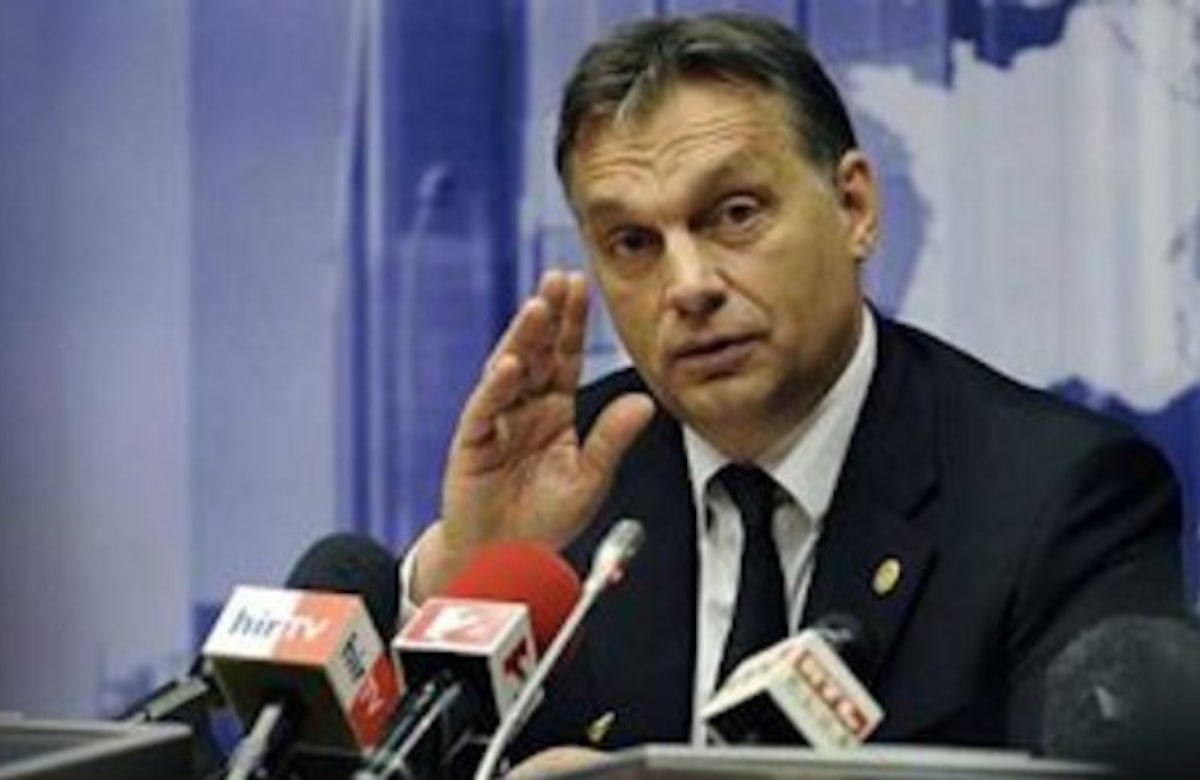 Hungary is demanding that the Claims Conference, the New York-based Jewish organization which handles payments to Holocaust survivors around the world, return about US$ 8 million in payments made to Holocaust survivors. The government in Budapest said the Claims Conference had failed to properly account for the money. Claims Conference leaders said that reams of information about the payments had been provided to the authorities and accused Hungary of “depriving” Shoah survivors through “disgraceful” and “deceitful tactics.”
Hungary is demanding that the Claims Conference, the New York-based Jewish organization which handles payments to Holocaust survivors around the world, return about US$ 8 million in payments made to Holocaust survivors. The government in Budapest said the Claims Conference had failed to properly account for the money. Claims Conference leaders said that reams of information about the payments had been provided to the authorities and accused Hungary of “depriving” Shoah survivors through “disgraceful” and “deceitful tactics.”
More than half a million Hungarian Jews perished during the Holocaust. Five years ago, the country agreed to provide US$ 21 million over a five-year period to help impoverished survivors of Hungarian descent, working with a Hungarian organization locally and the Claims Conference.
The money was supposed to be a down payment to help aging victims while Hungary worked with the organization on the longer, painstaking process of property and asset restitution tied to the Holocaust. The funding ranges from US$ 800 to US$ 2,000 per person annually to provide medicine, hearing aids and other necessities to the poorest of Hungarian survivors.
 Two years ago, after the nationalist Fidesz government of Prime Minister Viktor Orban (pictured left) came to power in Hungary, Commissioner Andras Levente Gal began challenging how the money had been spent, asking for more details about the funds. The Hungarian government halted its payments to the organization, holding on to US$ 5.6 million. “It is impossible to identify the individuals eligible for compensation or the grounds for their eligibility” based on the documents it provided, the Hungarian Ministry of Public Administration and Justice said on its website this week, arguing the organization had shown that the funds were distributed “on a far-from-equal footing.” Gal is now seeking to reclaim roughly US$ 8 million from the group, along with interest and added charges.
Two years ago, after the nationalist Fidesz government of Prime Minister Viktor Orban (pictured left) came to power in Hungary, Commissioner Andras Levente Gal began challenging how the money had been spent, asking for more details about the funds. The Hungarian government halted its payments to the organization, holding on to US$ 5.6 million. “It is impossible to identify the individuals eligible for compensation or the grounds for their eligibility” based on the documents it provided, the Hungarian Ministry of Public Administration and Justice said on its website this week, arguing the organization had shown that the funds were distributed “on a far-from-equal footing.” Gal is now seeking to reclaim roughly US$ 8 million from the group, along with interest and added charges.
The Claims Conference said it had repeatedly provided detailed reports to the Hungarian government on how the money was distributed, including one exceeding 400 pages in length that included the names of all of the beneficiaries, what they got and when. “Since this government commissioner has taken over they have not released one penny and have used all kinds of excuses why they can’t release the money and why they won’t,” Claims Executive Vice President Greg Schneider said. Hungarian officials had recently asked where every Holocaust survivor benefiting from the program was during the war, Schneider said. The organization said it would work with thousands of survivors around the world to gather that information, if Hungary signed an agreement that it would release the promised money within five business days of getting those details.
 The Claims Conference, according to an email it sent to the news agency JTA, insisted that “every penny was transferred to a Hungarian survivor, not even one cent was spent on administration or any other expense.” The email also said that funding for Holocaust survivors had stopped after 2010, when the Fidesz party came to power. “We call upon Prime Minister Orban to intercede in order to help needy Hungarian survivors who happen to live outside of Hungary today and comply with international agreements,” it added.
The Claims Conference, according to an email it sent to the news agency JTA, insisted that “every penny was transferred to a Hungarian survivor, not even one cent was spent on administration or any other expense.” The email also said that funding for Holocaust survivors had stopped after 2010, when the Fidesz party came to power. “We call upon Prime Minister Orban to intercede in order to help needy Hungarian survivors who happen to live outside of Hungary today and comply with international agreements,” it added.
Rising anti-Semitism in Hungary
The dispute has erupted at a time when Jewish organizations say bias against Hungarian Jews is at alarming heights, surging dramatically in recent years.
Nearly two-thirds of Hungarians surveyed this year said Jews “still talk too much about what happened to them in the Holocaust,” the Anti-Defamation League found, the highest rate among European countries it polled. Nobel Peace Prize laureate Elie Wiesel handed back a Hungarian award this summer, saying Hungary was whitewashing its past crimes.
Jewish organizations also complained that Hungary had dragged its feet in finding and arresting an alleged Nazi-era torturer, detaining him only after a British tabloid had confronted him at his Budapest apartment days earlier. The news emerged last month while President Janos Adler was in Israel, facing uncomfortable questions about the apparent rise in Hungarian animus toward Jews.






